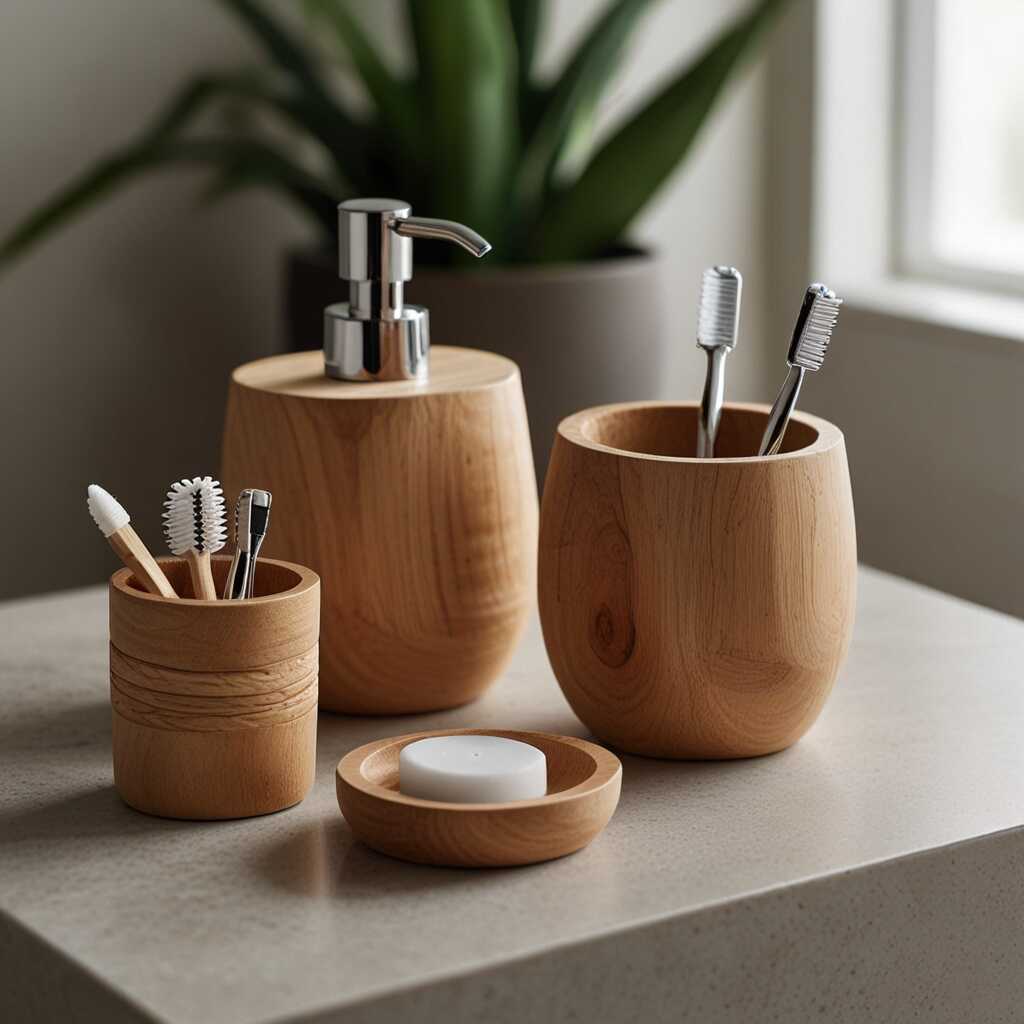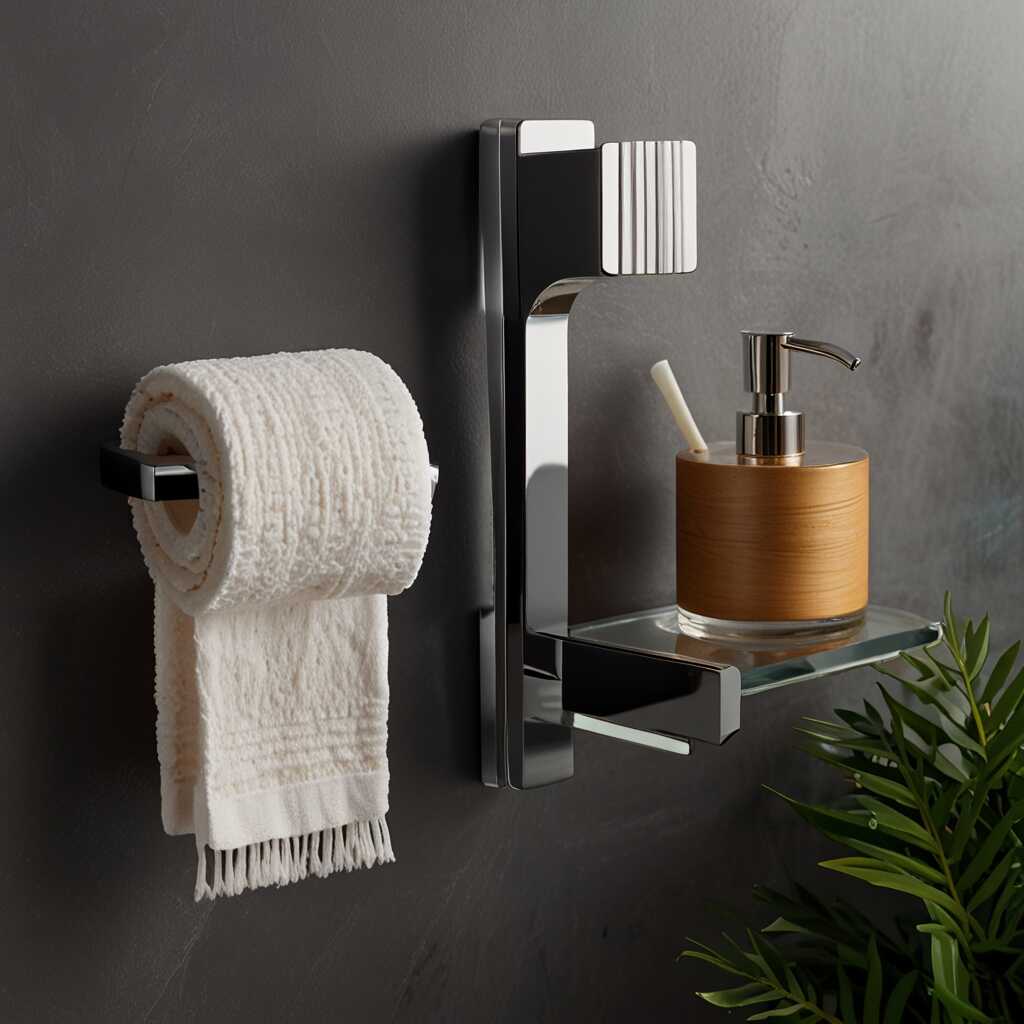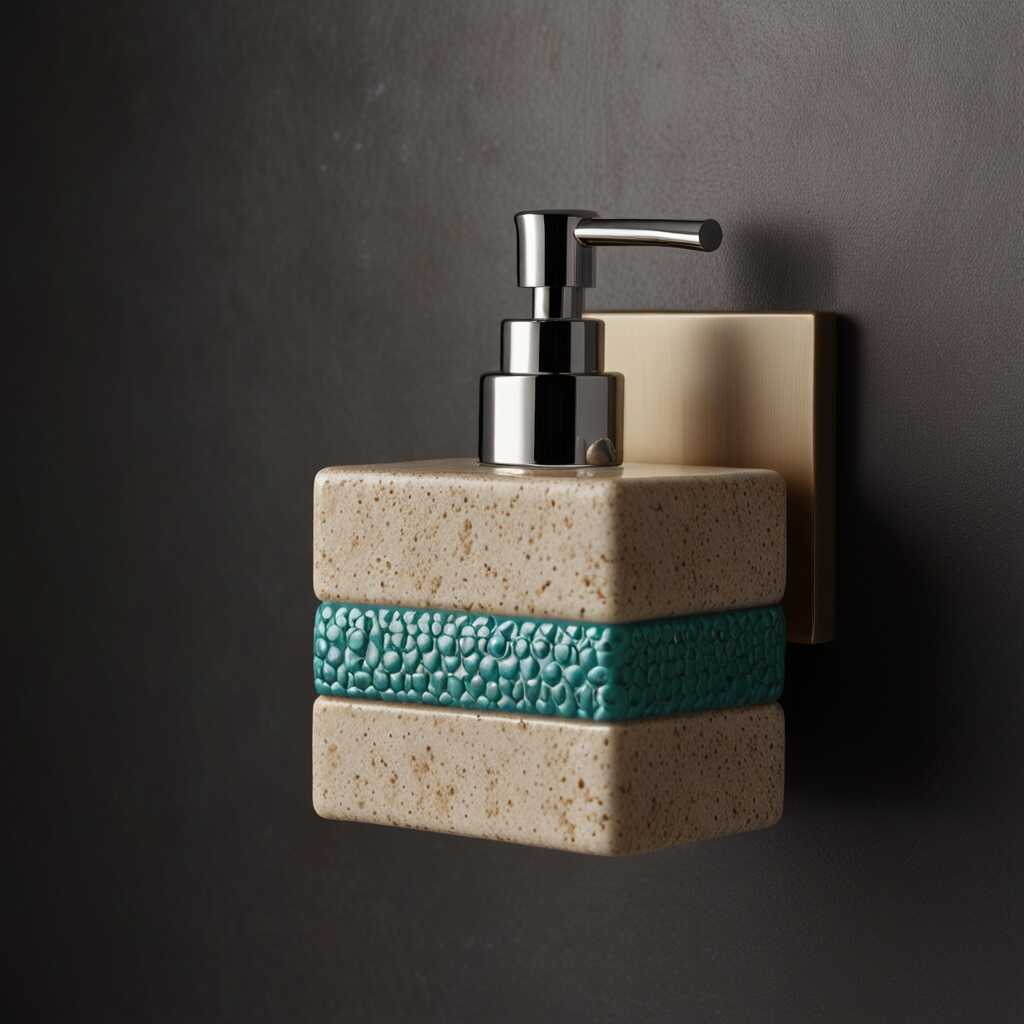Using natural stone in bathrooms provides a range of aesthetic and practical benefits. These benefits include beautiful finishes, versatility across different styles, and excellent durability. Customers often appreciate the variety these materials offer in creating cohesive, durable bathroom designs that stand the test of time.
Table of Contents
- Aesthetic Appeal and Versatility
- Matching Natural Stone with Bathroom Accessories
- Durability and Longevity in Bathrooms
- Which Types of Natural Stone Last the Longest in Bathrooms?
- Maintenance and Care of Stone in Bathrooms
- How Often Should You Seal Natural Stone in a Bathroom?
- Cost Considerations and Budgeting
- How Much Should You Budget for a Natural Stone Bathroom Remodel?
- Environmental Impact and Sustainability
- Can Natural Stone Be Recycled or Repurposed in Bathrooms?
- Health and Safety Benefits
- How Does Natural Stone Improve Indoor Air Quality?
Aesthetic Appeal and Versatility
Natural stone offers significant aesthetic benefits in bathroom design by providing high-quality finishes that are visually impressive and unique. Homeowners find it easy to incorporate these materials into various bathroom settings due to the exceptional versatility of natural stone. In personal experience, using natural stone has resulted in a bathroom that effortlessly matches with other bathroom accessories for a cohesive look. Natural stone comes in a variety of colors and textures for bathrooms, like marble, granite, and slate, offering endless design possibilities for DIY enthusiasts.
Matching Natural Stone with Bathroom Accessories
The best accessories to pair with stone effect bathrooms are metallic fixtures and wood elements, enhancing the natural feel. Coordinating natural stone with bathroom accessories sets involves choosing complementary colors and materials, such as stainless steel or matte black fixtures for a modern touch. Gray stone effectively pairs with white stone accessories to create a sleek and clean look. Specific brands, like Bathroom Accessories World, offer cohesive natural stone accessory sets that ensure a harmonious design.
Durability and Longevity in Bathrooms
Natural stone compares very favorably to other materials in terms of durability, as it is highly resistant to scratching and breaking. Factors that contribute to the longevity of natural stone in bathrooms include proper sealing and regular maintenance, which can extend the life to over 30 years. Certain types of natural stone, like granite and marble, are exceptionally durable for bathrooms. Natural stone can withstand the wear and tear of daily bathroom use, making it a practical choice for busy households.
Which Types of Natural Stone Last the Longest in Bathrooms?
Marble can last up to 20 years in a bathroom setting, while granite may last even longer due to its higher resistance to moisture. Slate is a long-lasting option for bathroom floors, often enduring over 50 years with proper care. Travertine tiles can outlast ceramic tiles, providing practical durability along with an elegant look. The average lifespan of limestone in a heavily used bathroom is approximately 10 to 15 years, depending on its usage and maintenance.

- Increases the home’s value
- Natural stone is very durable
- Works well with many design styles
- Materials like marble look luxurious
- Stone is easy to clean
- Feels cool to touch and refreshing
- Stone keeps its color over years

Comparative Analysis of the Benefits of Using Natural Stone in Bathrooms
| Aspect | Natural Stone | Ceramic Tiles | Durability (%) | Aesthetic Appeal | Cost ($ per sq.ft) |
|---|---|---|---|---|---|
| Longevity | High | Moderate | 80 | Premium | 30-50 |
| Maintenance | Moderate | Low | 70 | Classic | 5-20 |
| Slip Resistance | Variable | High | 75 | Elegant | 10-25 |
| Environmental Impact | Low | Moderate | 60 | Timeless | 15-30 |
| Uniqueness | High | Low | 90 | Luxurious | 25-40 |
| Tensile Strength (MPa) | 145 | 120 | 85 | Rich | 20-35 |
Maintenance and Care of Stone in Bathrooms
Natural stone should be sealed in a bathroom every 1-2 years to ensure durability. Use best practices for cleaning natural stone surfaces to avoid damage. Common cleaning products can be too harsh and potentially damage stone surfaces. Specialized products for maintaining natural stone in bathrooms, such as those from brands like StoneTech and Miracle Sealants, are recommended to preserve the quality of your stone surfaces.
How often should natural stone be sealed in a bathroom? Depending on the type of stone, sealing should be done every 1-2 years. What are the best practices for cleaning natural stone surfaces in bathrooms? Use a pH-neutral cleaner and a soft cloth or mop. Can natural stone be damaged by common bathroom cleaning products? Yes, products with acidic or alkaline properties can harm the stone. Are there specialized products for maintaining natural stone in bathrooms? Brands like StoneTech and Miracle Sealants offer specialized products.
How Often Should You Seal Natural Stone in a Bathroom?
The recommended sealing frequency for granite in humid bathrooms is every 12-18 months. Marble should be sealed more often than slate, ideally every 6-12 months. Travertine tiles in a high-traffic bathroom should be resealed at least once a year. Different sealing schedules are advisable for natural stone walls and floors.
How often should travertine tiles be resealed in a high-traffic bathroom? Annually, to maintain their durability. Different sealing schedules for walls and floors ensure each surface’s longevity. In high-moisture areas, the recommended frequency can vary based on factors like stone type and usage.
Cost Considerations and Budgeting
Natural stone bathrooms can be more cost-effective than other high-end materials over time. Factors that influence the cost of installing natural stone include stone type, bathroom size, and labor fees, which can contribute significantly to expenses. An initial investment in natural stone often pays off in the long run due to its durability and aesthetic appeal. There are budget-friendly options like using fewer stone tiles or selecting more affordable stone types.
Cost-effective options for high-end materials like natural stone result in a lasting benefit. Ecosystems for quality bathroom design. The National Kitchen & Bath Association states that natural stone can add value to properties, justifying initial expenses.
How Much Should You Budget for a Natural Stone Bathroom Remodel?
The average cost per square foot for natural stone tiles ranges from $10 to $30. The cost of marble for bathroom countertops is generally higher than granite, often by 20-30%. Installation costs of natural stone in medium-sized bathrooms typically go from $1,500 to $3,000. Additional costs for custom natural stone features such as intricate designs or special cuts can increase the budget.
Natural stone tiles averaging $10 to $30 per square foot offer varied price points. Granite countertops, like those from Caesarstone, often present a more budget-friendly option compared to marble. When planning a bathroom remodel, detailed cost breakdowns for materials and labor should be considered.

- Up to 20% more home value
- Natural stone can last over 50 years
- Suits 90% of modern and classic styles
- Marble can cost around $50 per square foot
- Stone surfaces clean with basic soap and water
- Feels 5 degrees cooler than other materials
- Keeps its original color for 10+ years
- Case Study: Stone Faucet Impact on Luxury Bathroom Redesigns
- Guide to Choosing the Right Stone Accessories for Your Bathroom
- Are Natural Stone Bathroom Accessories Worth the Investment?
- Case Study: The Rise of Stone Resin Accessories in UK Households
- Case Study: Grey Stone Accessories Set Transforming Small Bathrooms

Environmental Impact and Sustainability
In my experience, natural stone is significantly more eco-friendly than synthetic materials, which often involve chemical processes. Sustainable practices in sourcing natural stone include quarrying with minimal environmental disturbance and re-using water in the cutting process. Yes, natural stone can be recycled or repurposed in bathrooms, reducing waste. Eco-friendly certifications such as GREENGUARD and FSC ensure that natural stone products meet rigorous environmental standards for sustainability.
Can Natural Stone Be Recycled or Repurposed in Bathrooms?
The benefits of recycling natural stone tiles are clear: it conserves resources and reduces landfill waste. Old countertops can certainly be repurposed into new bathroom features like shower benches or shelves. In contemporary bathroom designs, recycled natural stone is used for mosaics, vanity tops, and even flooring. Repurposing natural stone is also an economically viable option due to reduced costs in raw materials and disposal.
Health and Safety Benefits
Natural stone surfaces are inherently mold-resistant and mildew-resistant, which helps maintain a healthier bathroom setting. Health benefits in bathroom settings include the natural antimicrobial properties of certain stones like granite. Natural stone often possesses hypoallergenic properties, making it safe for individuals with allergies. Additionally, natural stone can contribute to a healthier indoor air quality by not emitting volatile organic compounds (VOCs).
How Does Natural Stone Improve Indoor Air Quality?
Yes, marble can reduce allergens in the bathroom more effectively than granite due to its smoother surface. Natural stone tile contributes to reducing airborne contaminants by not absorbing or releasing pollutants. The benefits of using slate in a bathroom include its ability to purify air through natural filtration properties. Travertine tiles can have a positive impact on respiratory health by minimizing dust and other particles in bathrooms.